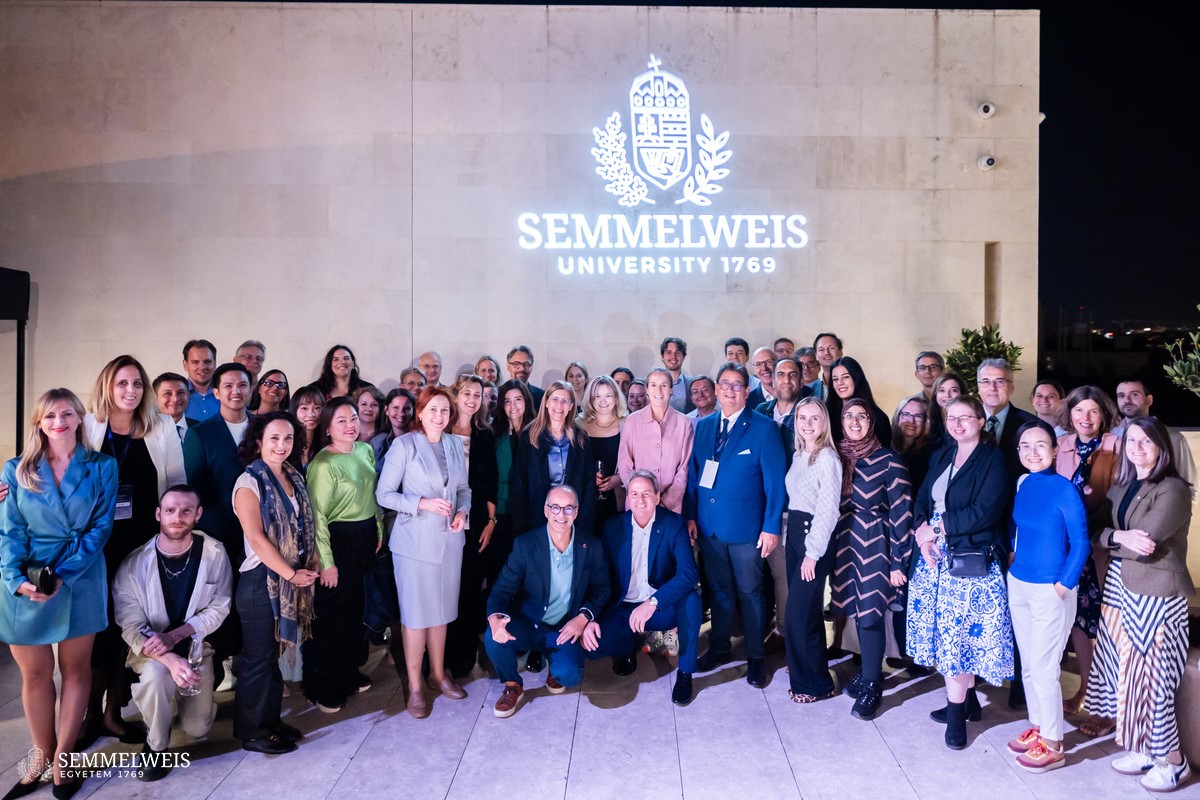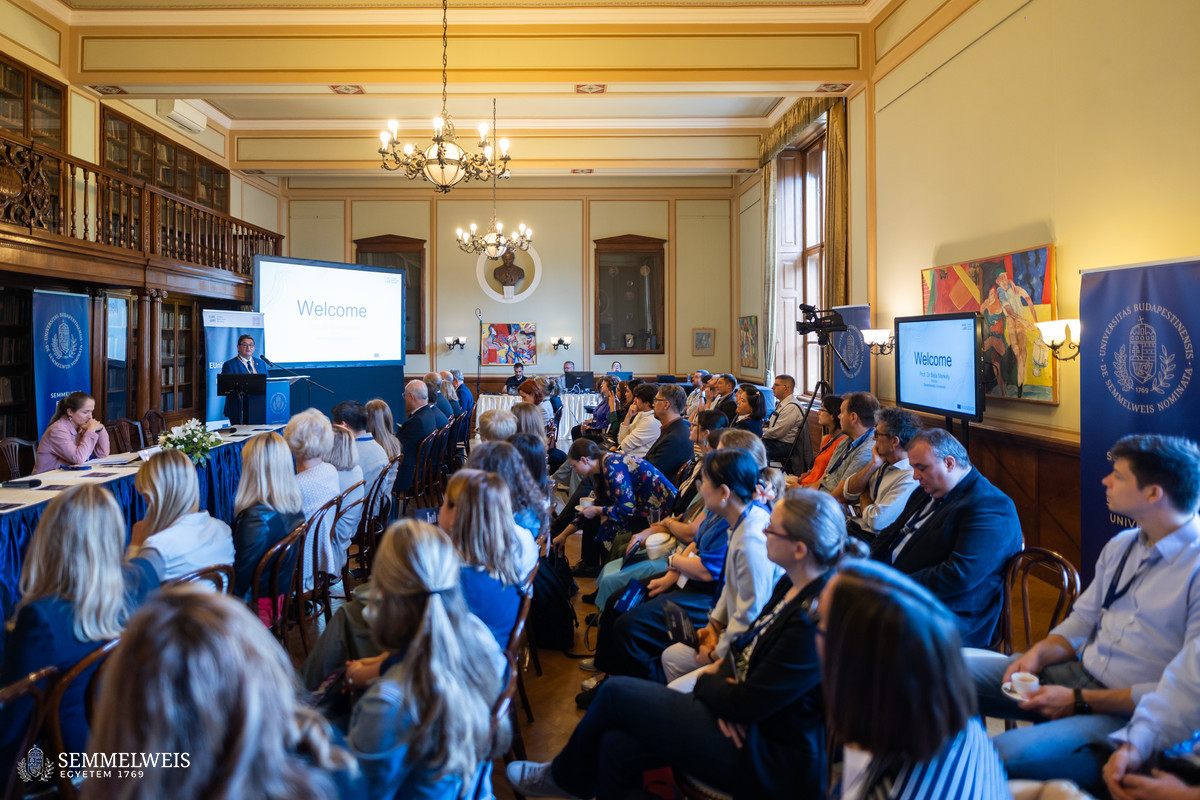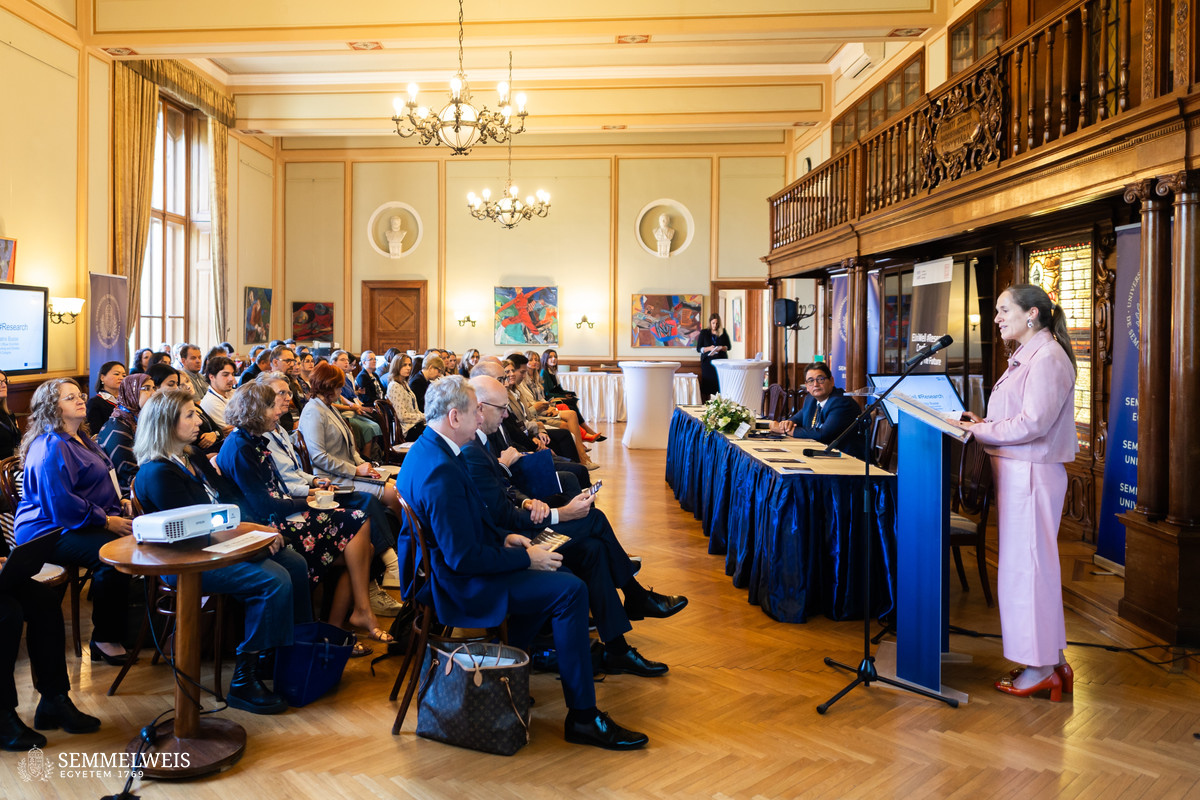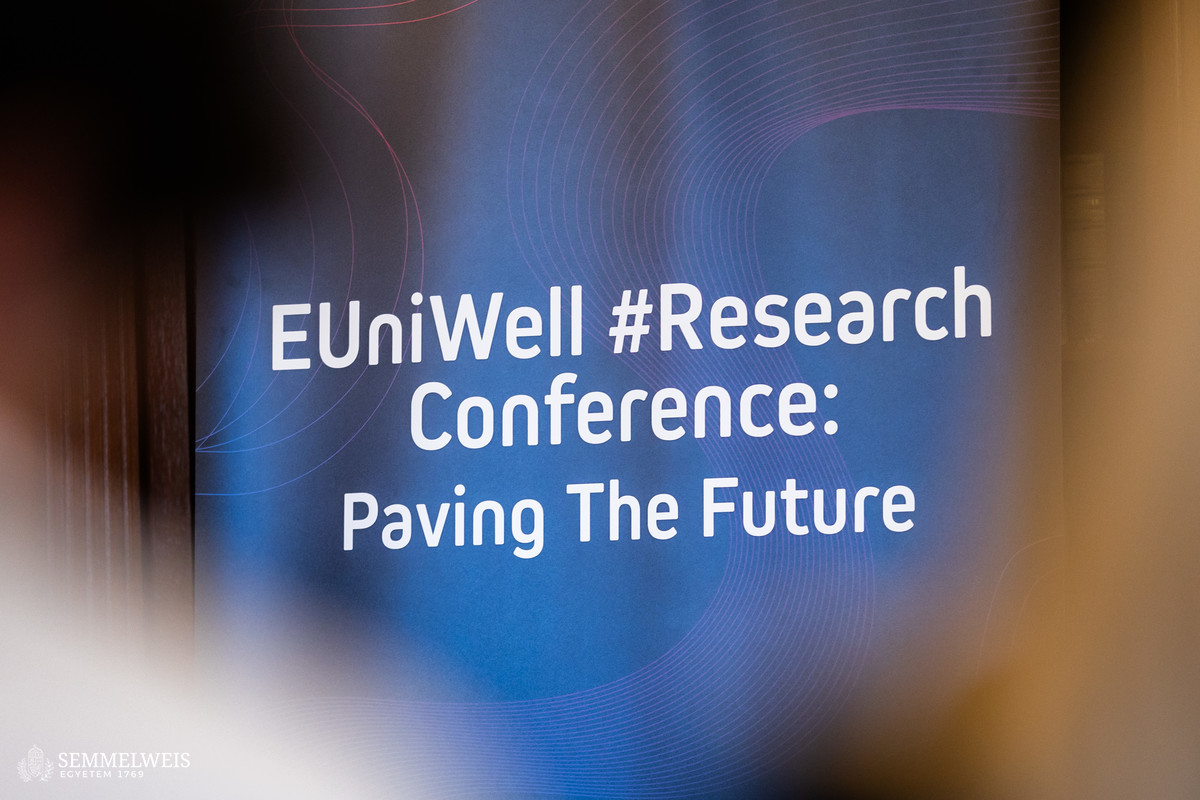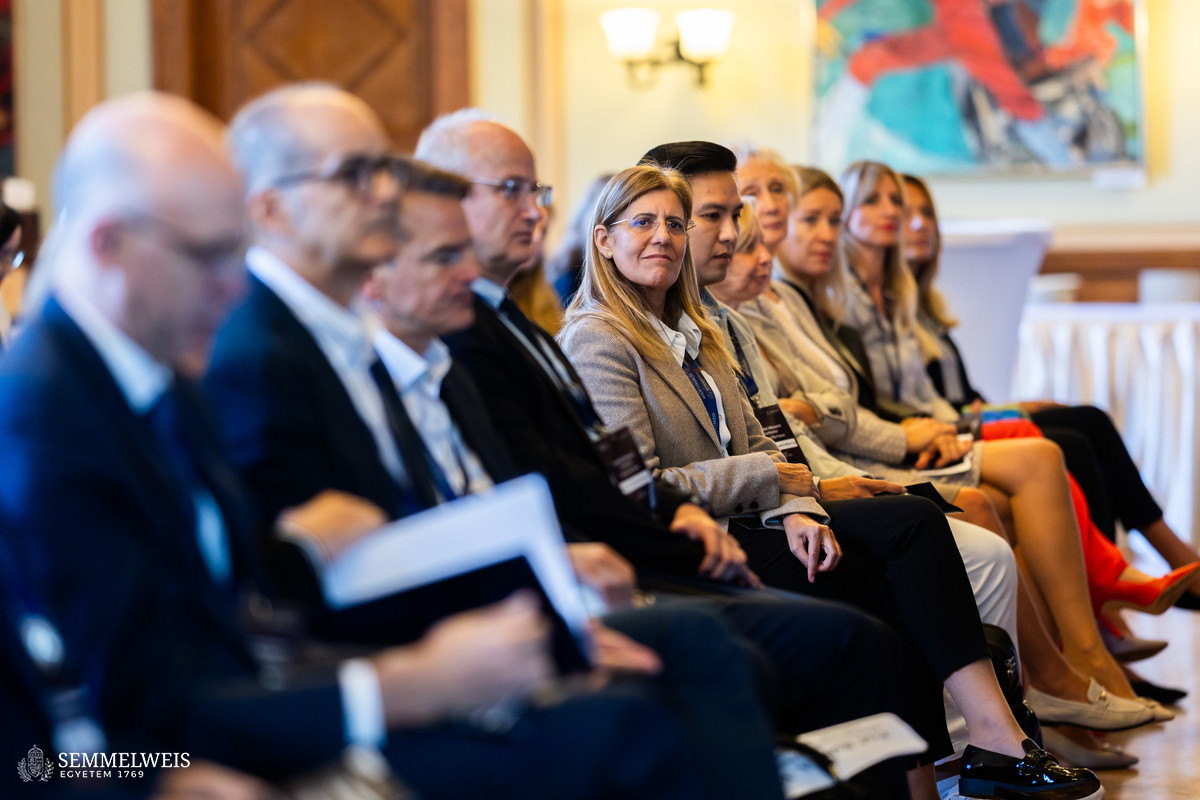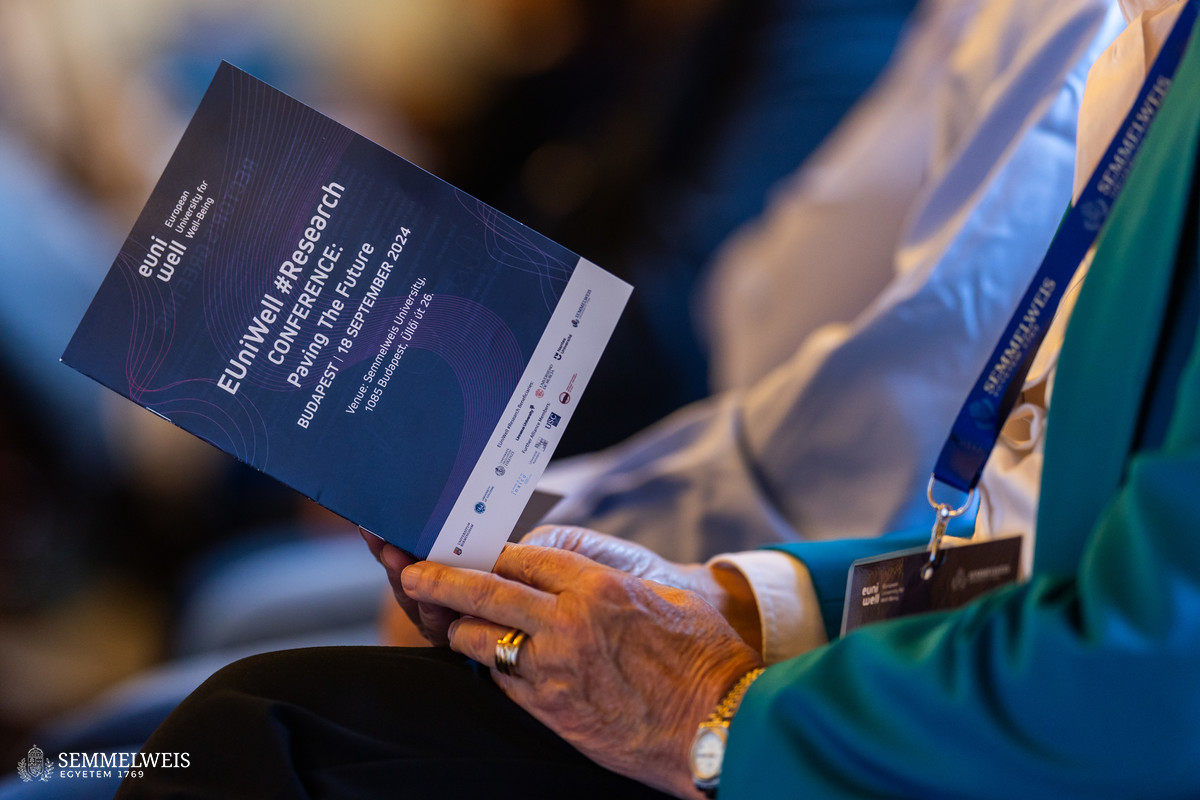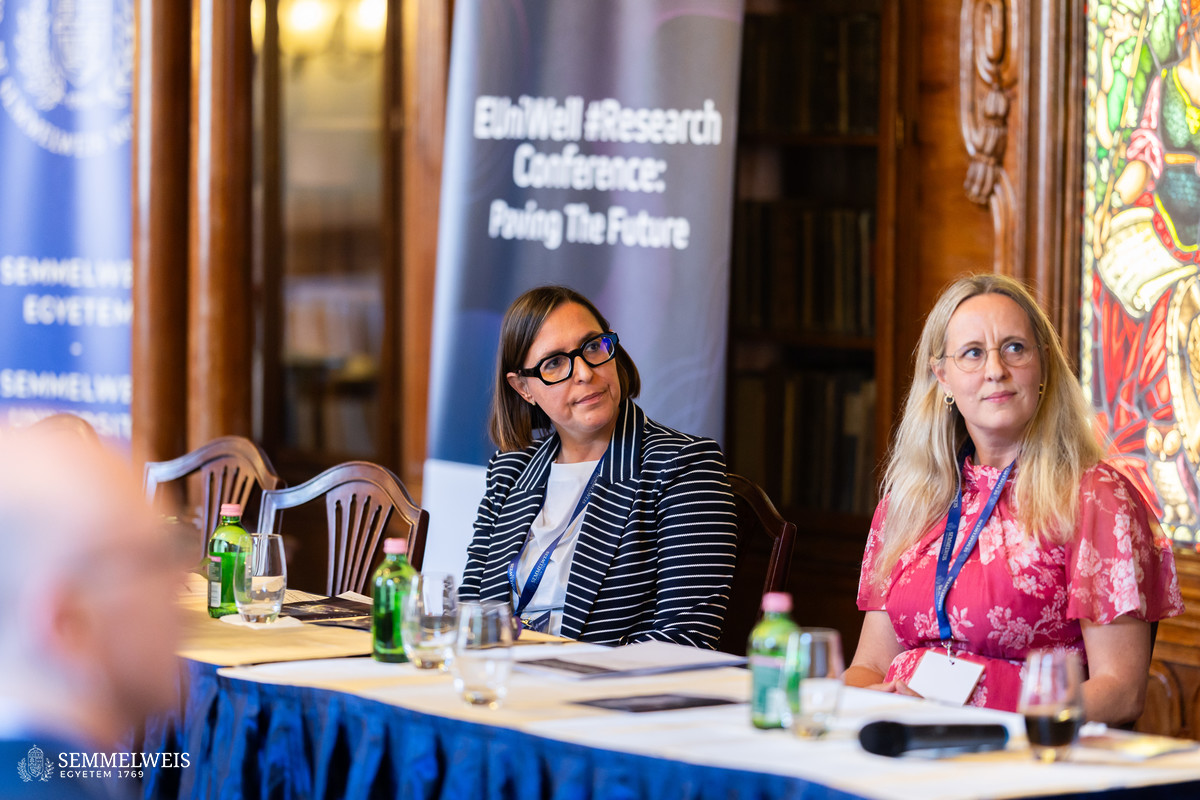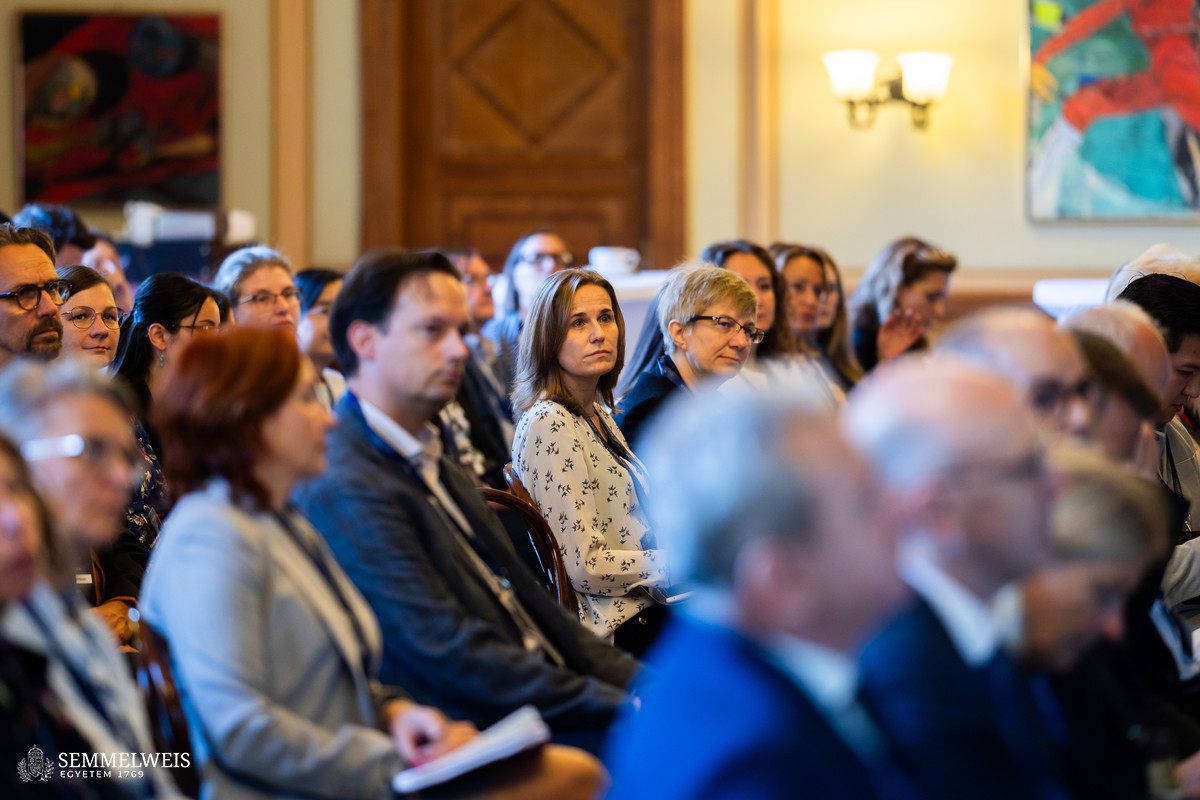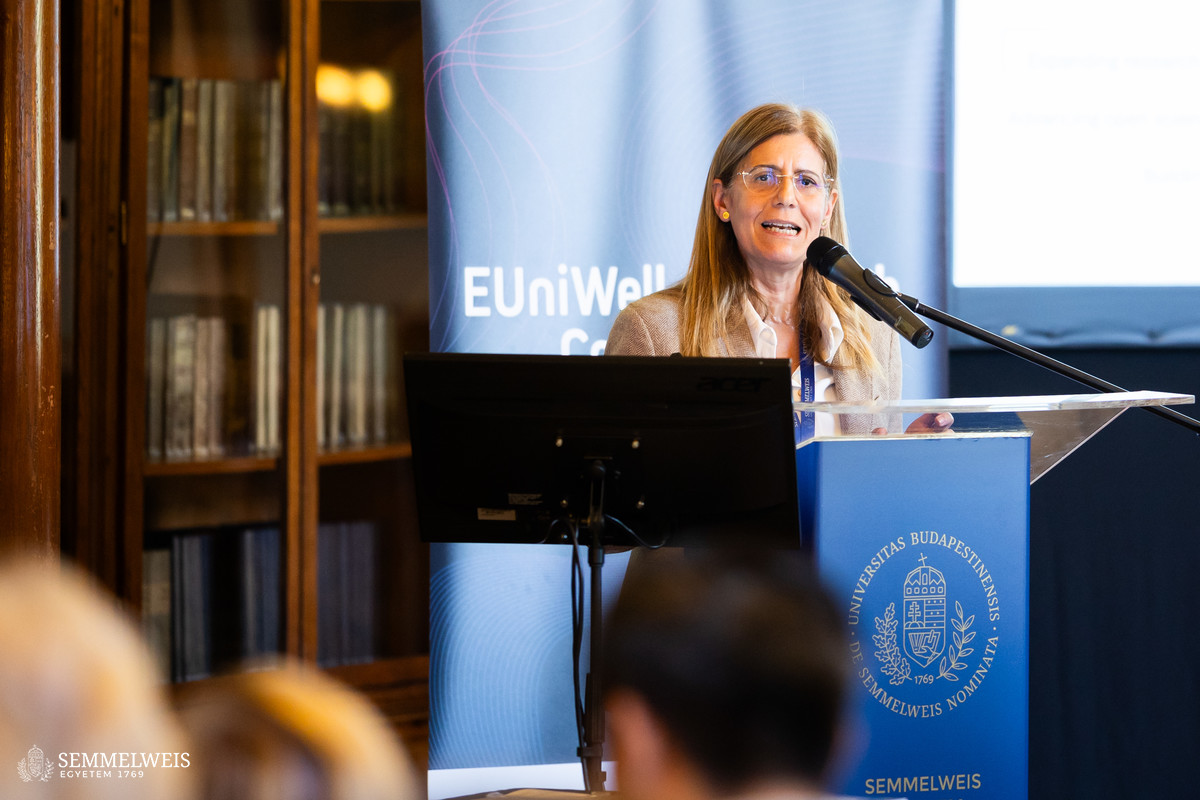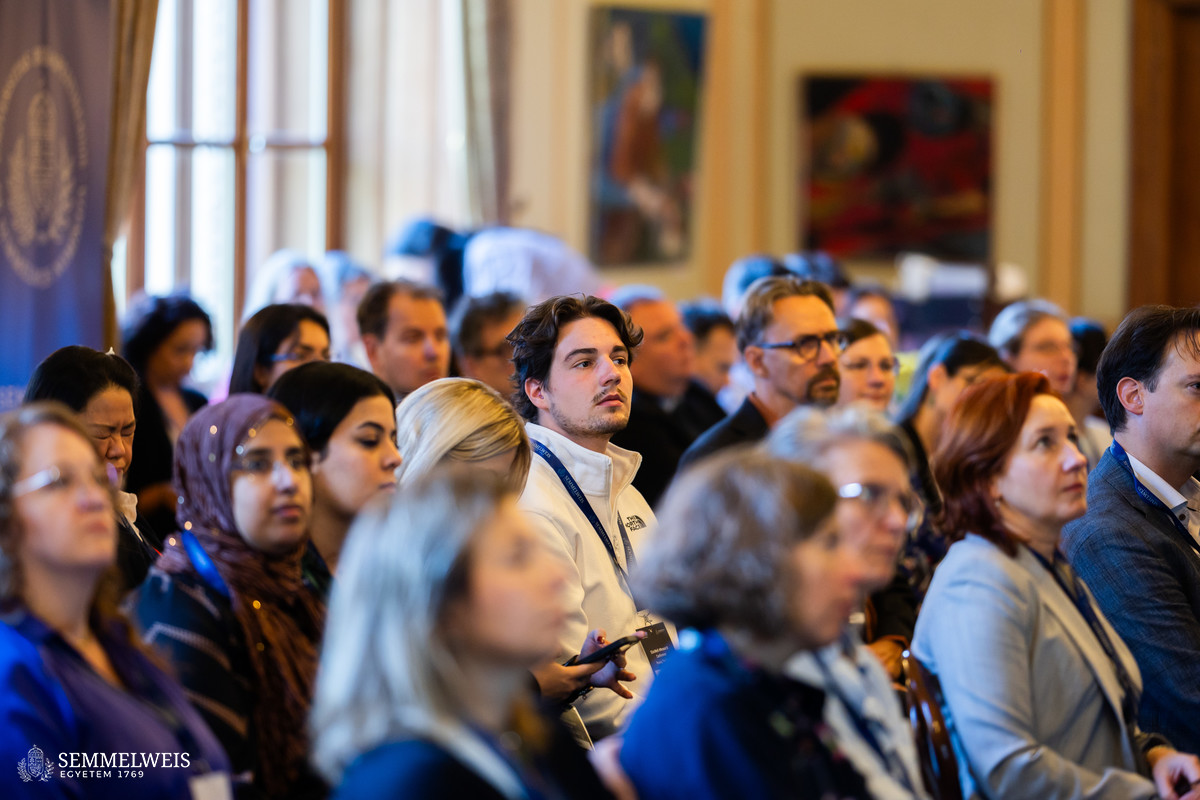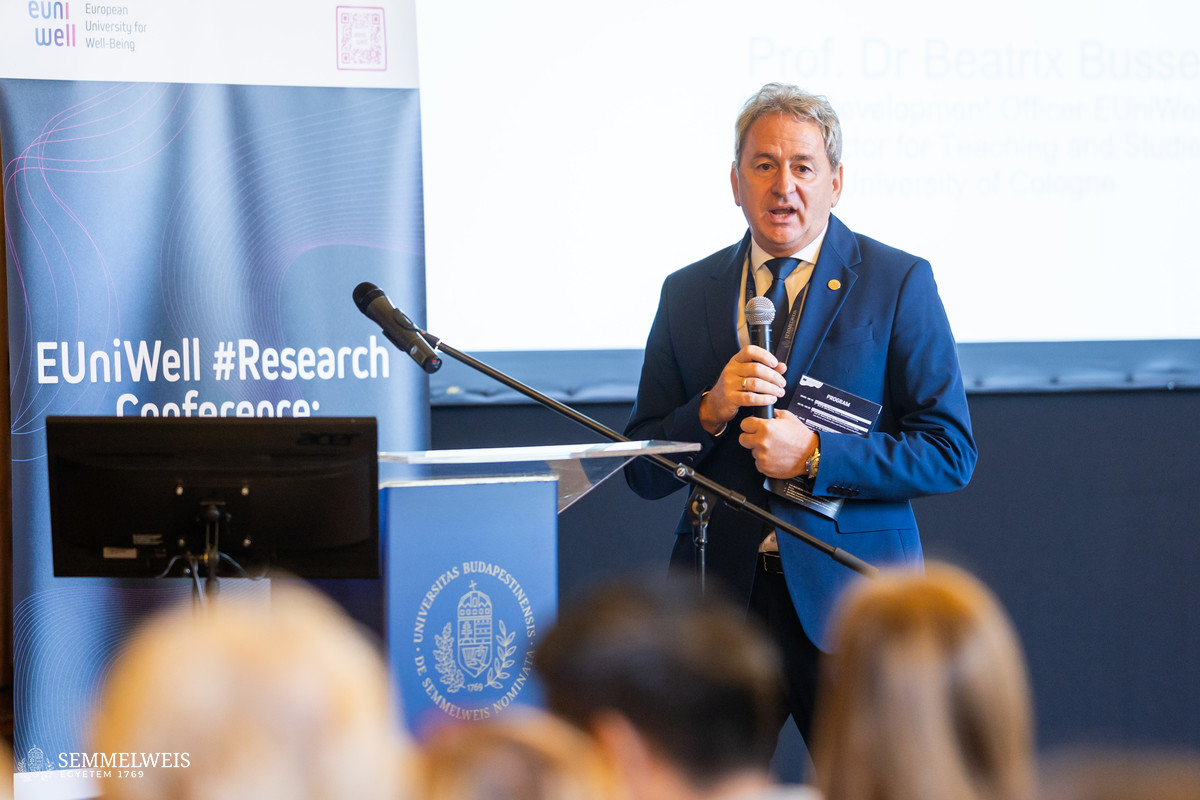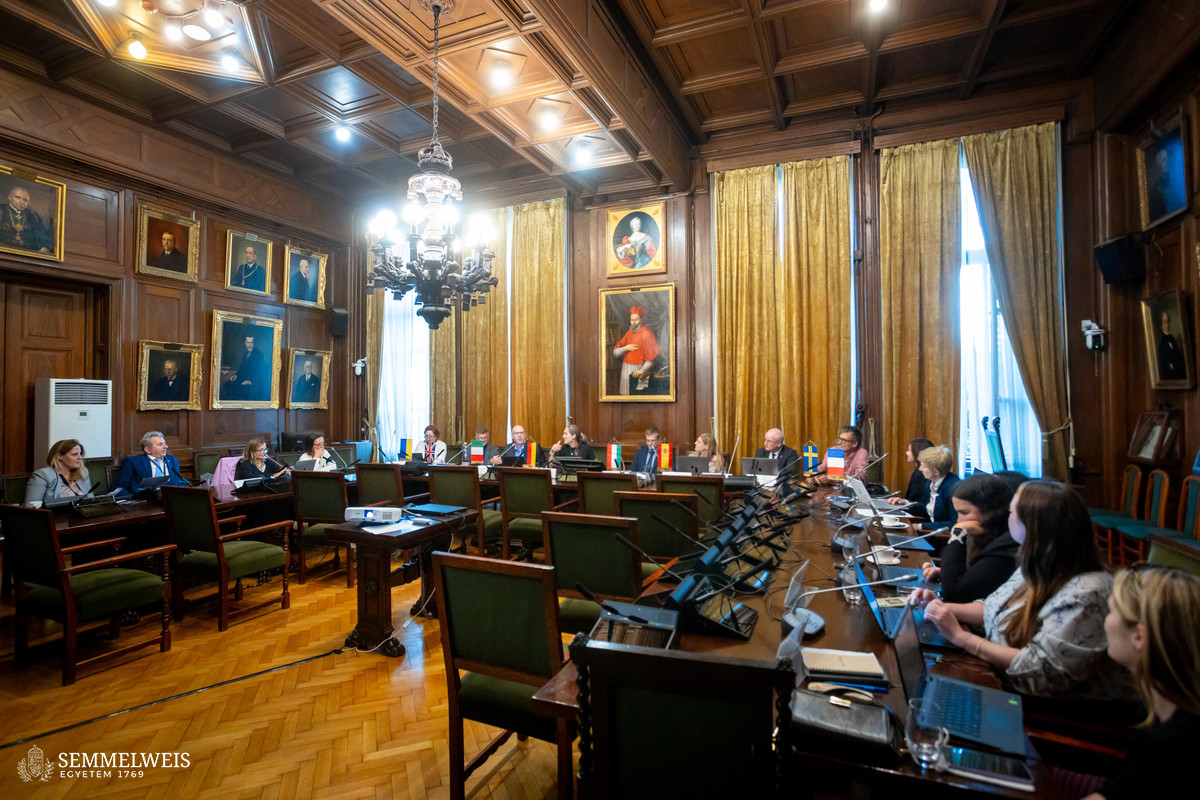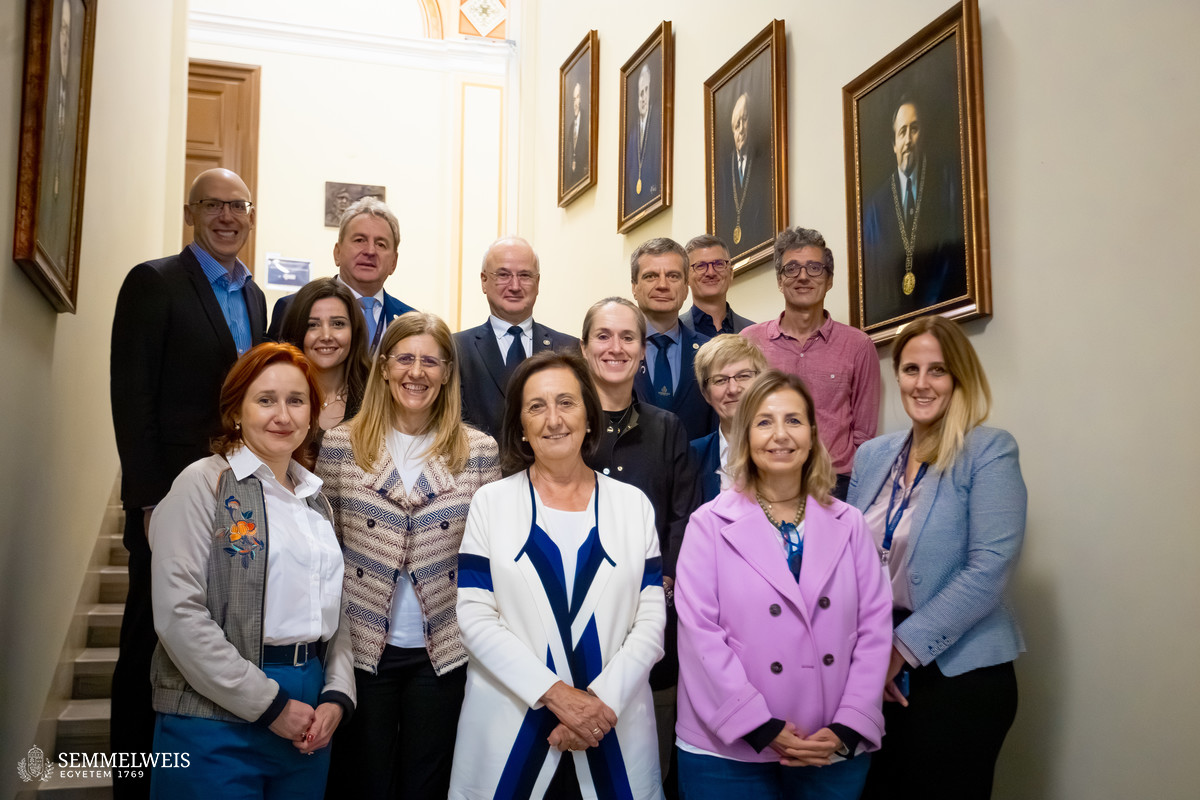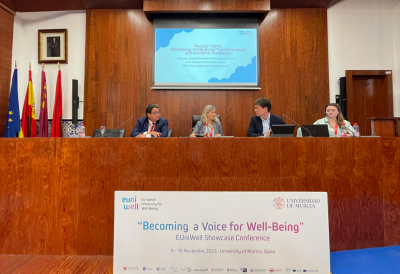The EUniWell #Research Conference, held on September 18, 2024, marked a significant milestone in the journey of the European University for Well-Being Alliance. Entitled “EUniWell #Research Conference: Paving The Future”, the conference celebrated the successful completion of the EUniWell #Research project under the Horizon 2020 funding line and the beginning of a new research era of joint development for the Alliance. The event brought together a diverse community of leader academics, researchers, educators, and policymakers, both on-site and online, to reflect on achievements and share insights.
In 2021 the Alliance obtained H2020 SwafS-Support Call funding from the European Commission for a project called EUniWell #Research to boost research partnerships and support young researchers in developing their careers.
In the past four years, the Alliance has made significant advances in its research agenda, and as a key component of the EUniWell Platform Model, the EUniWell #Research project has helped establish the foundations of a research and innovation ecosystem for the Alliance.
The EUniWell #Research project has enabled the development of research cooperation, shared infrastructures, mainstreaming of Open Science practices, launching the EUniWell Research Training Academy, and reskilling and upskilling of early career researchers within EUniWell. As part of the project, the Alliance has also developed a coordinated, collaborative EUniWell Research and Innovation strategic framework, and strengthened Alliance-wide digital tools and resources. The EUniWell #Research project has comprised various measures to support EUniWell’s vision and mission, such as the creation of the Well-being Incubator as a cross-cutting, collaborative, virtual operating environment for well-being-related research and innovation collaboration.
EUniWell #Research Conference on September 18, 2024
At the “EUniWell #Research Conference: Paving The Future” on September 18 at Semmelweis University, the EUniWell Alliance celebrated the successful completion and the achievements of the EUniWell #Research project funded by the Horizon 2020 program under the Science with and for Society (SwafS) call.
The EUniWell Research and Innovation Strategic Framework was officially launched, joint well-being research projects and initiatives were presented, inspiring discussions and roundtables about a common research ecosystem of the Alliance’s member universities, and the implementation of Open Science approaches were organized during the event.
The conference convened vice-rectors, leading researchers, and experts from EUniWell member universities to deliberate on strategic research initiatives and future directions for the Alliance around the theme of well-being.
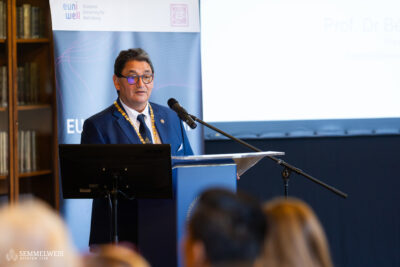 “We can only achieve great results by working together, whichever of the main pillars of our activity is concerned, be it healthcare, education, or research and innovation,” said Prof. Béla Merkely in his welcome address. He recalled that this had been particularly evident in recent times, when the coronavirus pandemic, the war in our neighborhood, and economic difficulties had challenged not only Semmelweis University but all higher education institutions and healthcare systems. He stressed that as an active player in the Central and Eastern European Higher Education, Research, and Healthcare Area, and through its students, researchers, lecturers, and health professionals, the university was actively working for global health and well-being, which was also a key objective of EUniWell. This led Semmelweis University to become a founding member of the European University for Well-Being, as at Semmelweis University, the well-being of students, staff, and society as a whole had always been a priority, with increasing healthy life expectancy being just as important as curing diseases and helping those in need.
“We can only achieve great results by working together, whichever of the main pillars of our activity is concerned, be it healthcare, education, or research and innovation,” said Prof. Béla Merkely in his welcome address. He recalled that this had been particularly evident in recent times, when the coronavirus pandemic, the war in our neighborhood, and economic difficulties had challenged not only Semmelweis University but all higher education institutions and healthcare systems. He stressed that as an active player in the Central and Eastern European Higher Education, Research, and Healthcare Area, and through its students, researchers, lecturers, and health professionals, the university was actively working for global health and well-being, which was also a key objective of EUniWell. This led Semmelweis University to become a founding member of the European University for Well-Being, as at Semmelweis University, the well-being of students, staff, and society as a whole had always been a priority, with increasing healthy life expectancy being just as important as curing diseases and helping those in need.
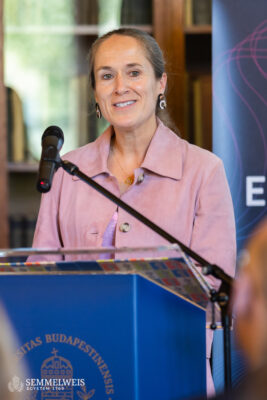 Reflecting on EUniWell’s journey, Chief Development Officer Dr. Beatrix Busse described EUniWell’s path and its transformation from a shared idea into the European University for Well-Being. The professor recalled that EUniWell was launched in 2020 under the EU’s European Universities initiative, with a well-being focus based on the shared multidirectional commitment and bibliometric analysis of the research strength of its founding members in five thematic areas, such as health, social equality, environmental change, culture and multilingualism, and teacher education. “With well-being at the heart of all we do, EUniWell is unique among European University alliances and one of the few with a clear thematic focus,” Dr. Beatrix Busse stressed. The chief development officer reminded the audience that according to EUniWell, the success of a country went beyond its GDP and was reflected in the quantifiable well-being of its individuals. In addition to mentioning threats to democracy and the dynamic developments in the field of AI, she underlined the urgent need for action by quoting the World Happiness Report, which has found that young people in many Western countries have been less happy than their elders in recent years. The professor underlined that the EUniWell 2030 roadmap was designed to address these challenges by becoming “a/the” voice for well-being, becoming a European university, and becoming “communities for well-being” in Europe and beyond. #Research not only aims to be at the forefront of well-being-focused research but also puts emphasis on training the workforce of the future and upskilling today’s academics with well-being-focused skills, she added.
Reflecting on EUniWell’s journey, Chief Development Officer Dr. Beatrix Busse described EUniWell’s path and its transformation from a shared idea into the European University for Well-Being. The professor recalled that EUniWell was launched in 2020 under the EU’s European Universities initiative, with a well-being focus based on the shared multidirectional commitment and bibliometric analysis of the research strength of its founding members in five thematic areas, such as health, social equality, environmental change, culture and multilingualism, and teacher education. “With well-being at the heart of all we do, EUniWell is unique among European University alliances and one of the few with a clear thematic focus,” Dr. Beatrix Busse stressed. The chief development officer reminded the audience that according to EUniWell, the success of a country went beyond its GDP and was reflected in the quantifiable well-being of its individuals. In addition to mentioning threats to democracy and the dynamic developments in the field of AI, she underlined the urgent need for action by quoting the World Happiness Report, which has found that young people in many Western countries have been less happy than their elders in recent years. The professor underlined that the EUniWell 2030 roadmap was designed to address these challenges by becoming “a/the” voice for well-being, becoming a European university, and becoming “communities for well-being” in Europe and beyond. #Research not only aims to be at the forefront of well-being-focused research but also puts emphasis on training the workforce of the future and upskilling today’s academics with well-being-focused skills, she added.
To this end, a common research ecosystem was established, to catalyze collaborative well-being research, open science, and research competencies for the future.
“These are not just the tools to pave the future, they are the stones that lay the foundation for how our work and our co-creation and the next generation will be able to thrive and to grow,” Dr. Beatrix Busse concluded.
In his keynote presentation, Dr. Andrew Epaphroditus Tay, Chief Wellbeing Officer of the National University of Singapore, introduced the NUS’ Mental Wellbeing Framework.
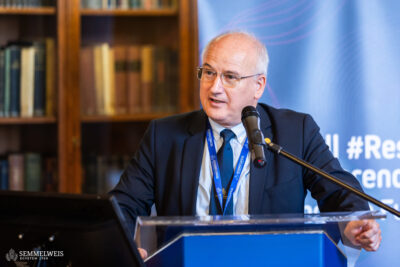 In the panel dedicated to EUniWell research skills for the future, moderator Dr. Miklós Kellermayer, EUniWell Academic Lead, Head of the Department of Biophysics and Radiation Biology at Semmelweis University started by pointing out that universities were one of the longest-standing institutions of mankind, conducting a societal mission to search, protect, and communicate, to spread and pass on the truth, and to implement the truth for the benefit of society by forming fundamental truths, taxonomies, and cultures. In his view, the new concept of university alliances elevated this age-old mission to a new level. “We have the ethical and moral responsibility of reflecting on the truth and passing this on to, in a truthful and ethical manner, to our scientific offspring, i.e. our students”, the professor added. Dr. Miklós Kellermayer gave an overview of EUniWell’s work package three, which aims to prepare researchers for a future world of science with well-being principles. In the first section of the panel, EUniWell Research Training Academy, speakers provided short presentations on how the Alliance responded to the needs of the job market and provided training for researchers to improve skills for the future with a focus on well-being. In the second section, mid-career researchers who participated in the EUniWell Leadership Fellowship and Early Career Researchers Talent Hub engaged in a roundtable discussion about the benefits of the initiative, and the direct impact of the training.
In the panel dedicated to EUniWell research skills for the future, moderator Dr. Miklós Kellermayer, EUniWell Academic Lead, Head of the Department of Biophysics and Radiation Biology at Semmelweis University started by pointing out that universities were one of the longest-standing institutions of mankind, conducting a societal mission to search, protect, and communicate, to spread and pass on the truth, and to implement the truth for the benefit of society by forming fundamental truths, taxonomies, and cultures. In his view, the new concept of university alliances elevated this age-old mission to a new level. “We have the ethical and moral responsibility of reflecting on the truth and passing this on to, in a truthful and ethical manner, to our scientific offspring, i.e. our students”, the professor added. Dr. Miklós Kellermayer gave an overview of EUniWell’s work package three, which aims to prepare researchers for a future world of science with well-being principles. In the first section of the panel, EUniWell Research Training Academy, speakers provided short presentations on how the Alliance responded to the needs of the job market and provided training for researchers to improve skills for the future with a focus on well-being. In the second section, mid-career researchers who participated in the EUniWell Leadership Fellowship and Early Career Researchers Talent Hub engaged in a roundtable discussion about the benefits of the initiative, and the direct impact of the training.
Throughout the day, the conference provided a platform for presentations and discussions focusing on key topics such as building a common research ecosystem, catalyzing collaborative well-being research, as well as the principles of the EUniWell Open Science Study Results and the EUniWell Open Data Management Plan.
Dr. Marcel Pop, Director of International Relations and EUniWell Strategic Leader at Semmelweis University summarized the successfull event as follows: “Semmelweis University has demonstrated again its international embeddedness and the pivotal role it plays not only regionally but also globally through its international partnership network. We continue to pursuit a mission that benefits both individual and societal well-being.”
EUniWell Vice-Rectors’ meeting on September 17, 2024
As the EUniWell #Research project concludes, the leadership of the EUniWell Alliance planned to recognize these achievements and look to the future with the EUniWell Vice-Rectors for Research and other distinguished leaders and research fellows of the EUniWell member universities.
On September 17, there was an in-person meeting with the participation and contribution of the following EUniWell Board members and EUniWell Vice-Rectors:
Professors Beatrix Busse, EUniWell Chief Development Officer and Vice-Rector for Student Affairs and Teaching at the University of Cologne; Dr. Debora Berti, Vice-Rector for Research at the University of Florence; Dr. Rima Sleiman, Vice-President of the Scientific Council at Inalco; Dr. Dirk Leuffen, Vice-Rector for Research, Innovation and Impact at the University of Konstanz; Dr. Ganna Tolstanova, Vice-Rector for Research at Taras Shevchenko National University of Kyiv; Dr. Senena Corbalán García, Vice-Rector for Research at the University of Murcia; Dr. Olivier Grasset, Vice President for Research and Open Science at Nantes Université; Dr. Pilar Bermejo Barrera, Vice-Rector for Scientific Policy at the University of Santiago de Compostela; Dr. Péter Ferdinandy, Vice-Rector for Science and Innovation at Semmelweis University; Dr. Miklós Kellermayer, EUniWell Academic leader at Semmelweis University; as well as Dr. Marcel Pop, EUniWell Strategic leader at Semmelweis University; Dr. Renáta Papp, EUniWell Work Package for Research leader at Semmelweis University; Eszter Turopoli, EUniWell Institutional Coordinator at Semmelweis University; Dr. Juan Antonio Corrales, EUniWell Work Package for Research leader at Santiago de Compostela (online); and Dr. Graham Harrison, EUniWell Managing Director.
The EUniWell Vice-Rectors’ meeting brought together the EUniWell member universities’ leaders to discuss strategies for how to pave the future of European research areas, develop science-based public policy initiatives, and foster collaboration among the EUniWell member universities.
Eszter Turopoli, Judit Szabados-Dőtsch
Photos by Bálint Barta, Boglárka Zellei – Semmelweis University
